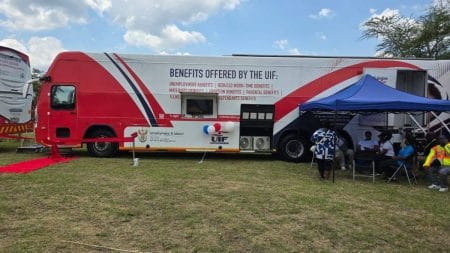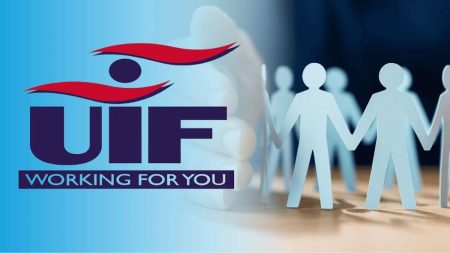In South Africa, workplace safety is a critical issue, and when accidents occur, it’s essential for workers to be aware of their rights and the support available to them. The COIDA Medical Benefits provided under the Compensation for Occupational Injuries and Diseases Act (COIDA) offer essential medical support to workers who have been injured or become ill due to workplace conditions.
In this article, we will explore COIDA Medical Benefits, detailing what medical costs are covered and explaining how workers can access treatment. By the end of this article, workers will have a clear understanding of how to navigate the COIDA system when it comes to medical expenses.
What is COIDA?
The Compensation for Occupational Injuries and Diseases Act (COIDA), officially known as Act No. 130 of 1993, ensures that employees who are injured at work or fall ill due to workplace conditions are compensated. One of the most important aspects of COIDA is the COIDA Medical Benefits, which provide for the medical care of injured or ill workers.
The law applies to most employees in South Africa, with a few exceptions like domestic workers and members of the South African National Defence Force. Through COIDA, workers are entitled to medical coverage without worrying about the costs of treatments, enabling them to focus on recovery.
Related: Understanding UIF Reduced Work Time Benefits
What Are COIDA Medical Benefits?
The COIDA Medical Benefits are designed to cover a wide range of medical expenses for workers who are injured or contract occupational diseases due to their work. Below is a comprehensive overview of what medical costs are covered:
1. Medical Treatment Costs
One of the primary elements of COIDA Medical Benefits is the coverage of all necessary medical treatments. This includes:
- Consultations with doctors: Workers can consult general practitioners or specialists, depending on their injury or illness.
- Hospitalization: If the worker needs to be admitted to a hospital, all costs associated with the hospital stay, surgery, and medical care will be covered.
- Medication: All prescribed medication essential for the treatment of the injury or disease falls under COIDA.
- Rehabilitation services: If rehabilitation, such as physiotherapy or occupational therapy, is needed to help the worker recover, these are also covered by COIDA Medical Benefits.
2. Surgical Procedures
For workers requiring surgery due to a workplace injury, COIDA Medical Benefits will cover:
- Pre-surgical assessments: This includes any tests, X-rays, or medical evaluations necessary before the surgery.
- The surgery itself: The entire cost of the surgical procedure, including the surgeon’s fees, anaesthesia, and equipment, is fully covered.
- Post-surgical care: Workers will continue to receive coverage for follow-up treatments and check-ups after surgery.
3. Emergency Medical Care
In the event of an injury that requires urgent attention, COIDA Medical Benefits ensure that emergency care is covered. This includes:
- Emergency transport: If an ambulance or emergency medical service is required to transport the injured worker to a hospital, COIDA covers the cost.
- Emergency room services: All urgent medical interventions needed to stabilize the worker’s condition will be paid for by the Compensation Fund.
4. Assistive Devices
Injuries that cause mobility issues or disabilities may require assistive devices, such as crutches, wheelchairs, or prosthetics. These assistive devices are covered under COIDA Medical Benefits, ensuring workers can continue their recovery process with the necessary support.
5. Chronic Medical Care
For occupational diseases or long-term health conditions caused by work, such as asbestosis or silicosis, COIDA Medical Benefits cover ongoing medical care. This may include chronic medication and regular medical consultations, ensuring workers are not burdened with long-term healthcare costs.
How Workers Can Access COIDA Medical Benefits
Understanding the process of accessing COIDA Medical Benefits is vital for workers to receive timely medical care. Below are the steps that workers should follow to ensure they can benefit from COIDA:
1. Report the Injury or Illness to the Employer
The first step in accessing COIDA Medical Benefits is to report the workplace injury or illness to the employer. This must be done as soon as possible, as there are strict reporting timelines: seven days for injuries and 14 days for occupational diseases.
2. Seek Medical Treatment
Workers should seek medical treatment immediately after the injury occurs or as soon as they notice symptoms of an occupational illness. It’s important to visit a medical practitioner or hospital that is recognized by the Compensation Fund. Workers must inform the healthcare provider that the injury or illness is work-related and falls under COIDA Medical Benefits.
3. Get Medical Reports
The treating doctor must complete a medical report (W.Cl.2), which outlines the worker’s condition and treatment. This report is essential for the Compensation Fund to process the claim. Additionally, a medical invoice (W.Cl.4) will detail the treatment costs, which are covered under COIDA Medical Benefits.
4. Employer Submits the Claim
The employer is responsible for submitting the required documentation, including the medical reports and treatment invoices, to the Compensation Fund. The Compensation Fund will then evaluate the claim and provide coverage for the medical expenses, in line with COIDA Medical Benefits.
5. Ongoing Medical Care
If the worker requires follow-up treatments, such as physiotherapy or additional consultations, these treatments should also be covered under COIDA Medical Benefits. Workers should keep all medical records and invoices to ensure that these expenses are reimbursed.
Read More: Common Mistakes to Avoid When Claiming UIF Benefits
What Is Not Covered by COIDA Medical Benefits?
While COIDA Medical Benefits offer extensive coverage, there are some situations that are not covered:
- Non-work-related injuries: If a worker is injured outside the workplace, COIDA does not cover these medical expenses.
- Pre-existing medical conditions: COIDA Medical Benefits do not extend to pre-existing conditions that were not worsened by the job.
- Non-occupational diseases: COIDA only covers diseases directly linked to the nature of the worker’s occupation.
The Role of Employers in Facilitating COIDA Medical Benefits
Employers play a key role in ensuring that workers can access COIDA Medical Benefits. They are responsible for:
- Reporting the injury or illness: Employers must file the necessary reports with the Compensation Fund within the required timeframes. This is crucial for workers to receive their COIDA Medical Benefits without delay.
- Paying upfront costs: In some cases, employers may be required to cover medical expenses upfront and then seek reimbursement from the Compensation Fund.
- Providing documentation: Employers must cooperate with the Compensation Fund by submitting all required medical reports and ensuring that claims are processed efficiently.
Workers’ Rights and COIDA Medical Benefits
For workers, it is important to understand their rights under COIDA Medical Benefits:
- Timely reporting: Workers should report injuries or occupational illnesses to their employers as soon as possible to avoid delays in accessing medical benefits.
- Seek prompt medical care: Injured workers should not delay seeking treatment. Early intervention is critical for recovery and ensures full utilization of COIDA Medical Benefits.
- Ensure claims are processed: Workers should work closely with their employers and ensure all necessary documents are submitted to the Compensation Fund for the reimbursement of medical expenses.
The COIDA Medical Benefits provided by the Compensation for Occupational Injuries and Diseases Act are an essential safety net for South African workers. They cover a wide range of medical expenses, from doctor’s consultations and hospital stays to surgeries and rehabilitation. These benefits ensure that workers who are injured or become ill due to workplace conditions receive the care they need without worrying about medical costs.
By understanding the COIDA Medical Benefits and knowing how to access them, workers can navigate the process more easily and focus on their recovery. If you or someone you know has been injured or fallen ill at work, make sure to follow the steps outlined in this article to access the full range of benefits provided under COIDA.










